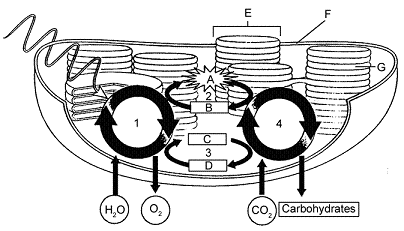In most plants stomata are
a. open during the night and closed during the day.
b. nearly always open.
c. closed only when guard cells are not exposed to sunlight.
d. almost never open.
e. open during the day and closed during the night.
E
You might also like to view...
What would happen if an enzyme inhibitor for the enzyme photodiesterase (PDE) was applied to a vertebrate eye?
A) The opsins found in cones would not be differentiated into the red, blue, and green proteins, causing the animals to be color blind. B) The cGMP-gated sodium channels would remain open, glutamate would be continuously discharged at the synapses, and the brain would not detect light absorbed by the rod cells. C) The lens could not be appropriately adjusted to focus light on the retina, resulting in either nearsightedness or farsightedness. D) All of the listed responses are correct.
Bacterial genetic diversity can arise from:
A. sexual reproduction. B. transduction and conjugation. C. meiotic recombination. D. meiotic recombination and conjugation. E. horizontal gene transfer and sexual reproduction.
Alternative forms of genes are called
a. homologues. b. locus. c. loci. d. alleles.
Carbon is fixed in which part of the diagram in Figure 9-3?

a. A
b. G
c. 4
d. 2
e. 1